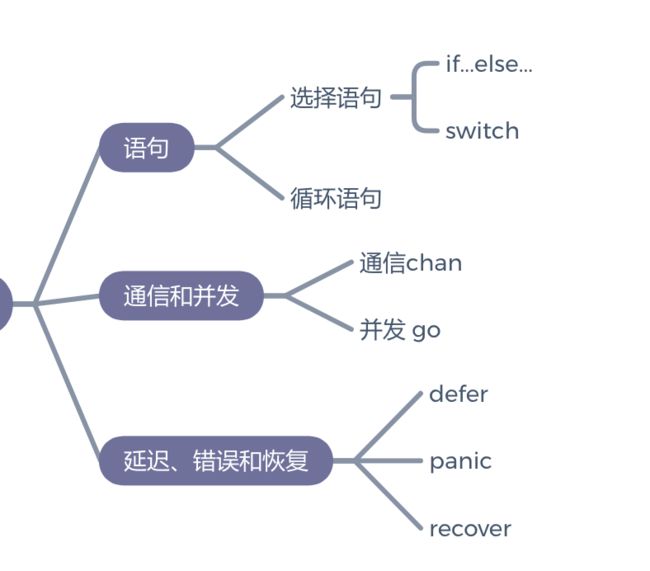- Python入门笔记
「已注销」
计算机
文章目录第0周课程导学第1周Python基本语法元素保留字数据类型语句与函数输入函数第2周Python基本图形绘制turtle库绝对坐标海龟坐标turtle角度坐标体系RGB色彩体系画笔控制函数运动控制函数方向控制函数循环语句第3周基本数据类型整型浮点数科学计数法复数类型数值运算操作符二元操作符有对应的增强赋值操作符数值运算函数字符串类型的表示字符串切片字符串类型及操作字符串类型格式化time库时
- C语言流程控制学习笔记
前端熊猫
C语言c语言学习笔记
1.顺序结构顺序结构是程序中最基本的控制结构,代码按从上到下的顺序依次执行。大多数C语言程序都是由顺序结构组成的。2.选择结构选择结构根据条件的真假来决定执行哪一段代码。在C语言中,选择结构主要有以下几种:2.1if语句if语句用于根据条件的真假来执行相应的代码块。if(condition){//当条件为真时执行的代码}2.2if-else语句if-else语句用于在条件为真时执行一段代码,为假时
- Python 基础-循环
赔罪
Python系统学习pythonwindows服务器
目录简介breakcontinue小结简介要计算1+2+3,我们可以直接写表达式:>>>1+2+36要计算1+2+3+...+10,勉强也能写出来。但是,要计算1+2+3+...+10000,直接写表达式就不可能了。为了让计算机能计算成千上万次的重复运算,我们就需要循环语句。Python的循环有两种,一种是for...in循环,依次把list或tuple中的每个元素迭代出来,看例子:names=[
- mysql 删表卡死_如何解决mysql 删表卡住的问题
霍冉
mysql删表卡死
如何解决mysql删表卡住的问题mysql删表卡住的解决办法:首先执行“showfullprocesslist;”语句;然后执行“killprocessid;”语句;最后使用kill语句将所有的id杀死,并重启MySQL即可。推荐:《mysql视频教程》MySQL表不能修改、删除等操作,卡死、锁死情况的处理办法。MySQL如果频繁的修改一个表的数据,那么这么表会被锁死。造成假死现象。比如用Navi
- mysql实验存在问题_数据库实验中遇到的问题以及解决方法
浮在水里的朔子
mysql实验存在问题
数据库实验中遇到的问题:1、一个表有两个主码时要按住ctrl选择;2、起别名时,当别名中没有空格时可以用as也可以不用,如:snoxh和snoasxh都是对的;如果有空格则可用单引号或中括号把别名括起来;3、在往表中填入数据时,要注意参照完整性。应该最后输入外码,否则保存不了;3.只有表的拥有者才可以在表上创建触发器4.在SQL2005中,创建触发器语句中,不能用before,只识别after;5
- oracle序列每天重置
&loopy&
oracle数据库
在Oracle数据库中,若要实现序列每天重置,可以通过以下步骤进行操作:一、创建序列首先,需要创建一个序列。创建序列的SQL语句如下:CREATESEQUENCEsequence_nameSTARTWITH0--或其他起始值INCREMENTBY1CACHE10;--缓存大小可根据需要调整其中,sequence_name是序列的名称,STARTWITH指定序列的起始值,INCREMENTBY指定序
- MongoDB:掌握核心常用命令语句,精通数据操作
泰山AI
数据库技术Docker入门到精通mongodb数据库
标题:MongoDB:掌握核心命令,精通数据操作前言:MongoDB是一种非关系型数据库,以文档为中心,使用JSON格式的BSON来存储数据。它具有高可用性、高性能和易于扩展的特点,被广泛应用于各种规模的项目中。本文将详细介绍MongoDB的常用命令,帮助你更好地理解和掌握MongoDB的数据操作。一、连接与断开数据库要开始使用MongoDB,首先需要连接到数据库。在命令行中输入以下命令:mong
- Java零基础入门笔记:(4)方法
Sherlock Ma
JavaJava入门java笔记开发语言学习方法改行学it跳槽程序人生
前言本笔记是学习狂神的java教程,建议配合视频,学习体验更佳。【狂神说Java】Java零基础学习视频通俗易懂_哔哩哔哩_bilibili第1-2章:Java零基础入门笔记:(1-2)入门(简介、基础知识)-CSDN博客第3章:Java零基础入门笔记:(3)程序控制-CSDN博客--方法何谓方法Java方法是语句的集合,它们在一起执行一个功能。方法是解决一类问题的步骤的有序组合方法包含于类或对象
- mybatis存储过程返回list
&loopy&
mybatislist数据结构
在MyBatis中调用存储过程并返回列表(List)通常涉及以下几个步骤:定义存储过程:首先,在数据库中定义存储过程,并确保它返回结果集。配置MyBatis映射文件:在MyBatis的映射文件中配置调用存储过程的SQL语句和返回类型。编写Mapper接口:定义Mapper接口方法,该方法将调用存储过程并返回List。调用Mapper方法:在Service层或Controller层调用Mapper接
- C语言分支语句
2401_88435596
c语言开发语言笔记改行学it
C语言中分支语句主要有以下几种:一.ifinta=1;if(2==a)printf("hehe\n);ifelseif(1==a)printf("hehe\n");elseprintf("haha\n");ifelsefielseif(a=18&&a<60)printf("青壮年");elseprintf("老年");注意:当有多个if时,else与离它最近的if配对二.switchcase---
- redux-saga和redux-thunk的区别与使用场景?
小安吖~
前端javascript开发语言react.js前端框架
Redux-Saga和Redux-Thunk是两个常用的Redux中间件,用于处理异步操作。它们具有一些区别和适用场景。区别:编码风格:Redux-Saga使用Generator函数来处理异步操作,而Redux-Thunk使用函数来处理异步操作。控制流程:Redux-Saga提供了强大的控制流程能力,可以以同步的方式表达复杂的异步逻辑。它使用监听器和yield语句来控制和组织异步操作的流程。而Re
- Android14 AOSP 允许system分区和vendor分区应用进行AIDL通信
冬瓜神君
androidbinder
在Android14上,出于种种原因,system分区的应用无法和vendor分区的应用直接通过AIDL的方法进行通信,但是项目的某个功能又需要如此。好在Binder底层其实是支持的,只是在上层进行了屏蔽。修改frameworks/native/libs/binder/BpBinder.cpp文件,找到status_tBpBinder::transact方法,屏蔽相关判断语句或者错误返回即可。如下
- 【网络安全 | 开发】全网最详细Go笔记(3w字总结)
秋说
go网络安全
写在前面鉴于全网Go语言知识点的总结分散难懂、良莠不齐,为了避免初学者少走弯路,更好更快地掌握Go知识,博主特地对其总结分享。文章目录写在前面Go语言概念语言特色Go语言用途Go语言环境安装Go语言基础组成GO语言基础语法Go标记行分隔符字符串连接空格格式化字符串Go语言数据类型Go语言变量局部变量和全局变量Go语言常量Go语言运算符Go语言条件语句Go语言循环语句Go语言函数Go语言数组Go语言
- 利用sql循环语句实现基本的数据累加和阶乘
Dream it possible!
sql
求1+2+3+…+100的和:declare@iint,@sumint;//declare声明变量set@i=0;//set实现赋值,并且只能为一个变量赋值set@sum=0;while@i<=100//在使用时须写@begin//begin~end实现分块set@sum+=@i;//在对变量赋值时需用setset@i+=1;endprint‘1+2+3+…+100=’+str(@sum);//输
- 50道题快速复习MySQL之准备篇
比奇堡的天没有云
速通MySQLmysqloracle数据库
文章目录1.创建数据库表2.创建表数据本文旨在帮助大家快速复习MySQL,共有4张表,50道题.本篇文章在做讲解50道题目之前,先将数据库表以及表中的数据创建好。1.创建数据库表建表语句如下,分别是学生表,课程表,教师表和成绩表。#–1.学生表#Student(s_id,s_name,s_birth,s_sex)–学生编号,学生姓名,出生年月,学生性别CREATETABLE`Student`(`s
- 实现MySQL数据全量迁移至Hive的简单脚本
xiaoxaoyu
数仓数据仓库
1、主要思路:编写脚本执行建表语句、sqoop命令1.1、编写建表语句脚本思路:在虚拟机下执行hive-f/脚本路径即可执行hql脚本1.2、编写shell脚本脚本内容为分为两部分执行hql建表语句脚本sqoop迁移命令2、示范案例:2.1、hive建表脚本:--示范案例dropdatabaseifexistsods_myshopscascade;createdatabaseods_myshops
- Vue3 循环语句
wjs2024
开发语言
Vue3循环语句引言在Web开发中,循环语句是处理数据集合的常用手段。Vue3作为当下流行的前端框架,提供了丰富的循环语句,以帮助我们更高效地处理数据。本文将详细介绍Vue3中的循环语句,包括其使用方法、优缺点以及在实际项目中的应用。一、Vue3中的循环语句Vue3提供了三种循环语句,分别是v-for、v-if和v-else-if。下面将逐一介绍。1.1v-forv-for是Vue3中最常用的循环
- Linux编程---shell编程基本语句
weixin_51790712
linux服务器
echo~printfread--表示从哪个键盘获取输入3.shell脚本输入输出readnameecho'$name'a+b;4.shell中的引号"":打印字符串,遇到$变量($name)则打印变量中的值(name变量的值)'':打印字符串,遇到$变量依然打印$变量(原样输出)``:将中间的字符串按照命令打印(命令置换)//用命令结果置换这条命令`date`==>用命令的结果替换这个`date
- 浅谈IP地址和网络安全
luck安
web安全网络协议网络web安全
今天学了一下关于IP地址的一些东西,发现IP地址虽然只有简简单单的几串数字组合而成,然而实际上却有很深的玄机。本人也想成为一名网络安全的小白,然后我发奋看视频,看书,也渐渐了解了网络安全这一大框,大多的网络安全渗透的原理也略知一二。网络安全sql注入比如sql注入,利用精心构造出来的sql语句,从而获取到你想要的数据库信息,我们一般可以使用一些漏洞扫描工具或者sql注入脚本比如sqlmap进行快速
- C# 中对 Task 中的异常进行捕获
手搓人生
C#编程c#
以下是在C#中对Task中的异常进行捕获的几种常见方法:方法一:使用try-catch语句你可以使用try-catch语句来捕获Task中的异常,尤其是当你使用await关键字等待任务完成时。usingSystem;usingSystem.Threading.Tasks;classProgram{staticasyncTaskMain(){try{awaitTask.Run(()=>{//模拟异常
- 深入浅出:Go 语言的学习之路
软件架构师笔记
golanggolang学习开发语言
文章目录1.Go语言简介2.Go语言的安装与环境配置2.1安装Go2.2配置开发环境3.Go语言基础语法3.1变量与数据类型示例代码:定义变量3.2控制结构示例代码:条件语句示例代码:循环语句3.3函数与方法示例代码:定义函数示例代码:定义方法4.并发编程4.1Goroutines示例代码:使用Goroutines4.2Channels示例代码:使用Channels5.面向对象编程5.1结构体与方
- MySQL 中的 REPLACE INTO语法
九转成圣
mysql数据库
MySQL中的REPLACEINTO语法年度优秀博主冲顶就差你一票,诚邀您助力,点击投票,感激不尽https://www.csdn.net/blogstar2024/detail/294REPLACEINTO是MySQL中的一种特殊语句,用于在插入数据时检测是否存在冲突。如果目标表中已存在与新插入行的主键(PRIMARYKEY)或唯一键(UNIQUEKEY)冲突的记录,则会删除旧记录并插入新记录。
- SQL注入攻击:注释符号(# --)详解与防范 | 网络安全必读
浩策
SQL注入漏洞sqljava数据库网络安全安全架构web安全
目录SQL注入中的注释使用常见的注释符号URL编码中的注释SQL注释的实际应用提示注意:案例1:案例2:---注释案例详解SQL注释的解释解析注入语句:admin'or'1'='1'---1.admin'2.or'1'='1'3.---结果总结SQL注入中的注释使用SQL语言允许使用注释,就像其他编程语言一样。注释通常用于记录查询中的某些部分或忽略查询的一部分。在SQL注入攻击中,注释符号常常被用
- Python变量作用域250218
taoyong001
python
函数调用时,会创建自己的独有的作用域作用域是以函数为作用域的而且使用条件语句,可能让定义一些变量的代码运行,从而创建其内部变量,如果定义条件不成立,这些变量就不会被创建并被使用变量只要在函数中出现,就会一直有效到函数结束全局变量与局部变量在py文件中定义的变量叫做全局变量,一般要用大写global关键字默认情况下,在局部作用域内对全局变量只能读取,无法重新赋值如果在局部来修改全局变量就是相当于在局
- MySQL 中各种日志简介
C语言扫地僧
MySQL专栏mysql数据库学习
MySQL日志慢查询日志(Slowquerylog)慢查询⽇志由执⾏时间超过系统变量long_query_time指定的秒数的SQL语句组成,并且检查的⾏数⼤于系统变量min_examined_row_limit指定值。被记录的慢查询需要进⾏优化,可以使⽤mysqldumpslow客⼾端程序对慢⽇志进⾏分析汇总。获取初始锁的时间不计⼊执⾏时间,mysqld在执⾏完SQL语句并释放所有锁后才将符合条
- MYSQL中的性能调优方法
昔我往昔
数据库mysql数据库
MySQL性能调优是数据库管理的重要工作之一,目的是通过调整系统配置、优化查询语句、合理设计数据库架构等方法,提高数据库的响应速度和处理能力。以下是常见的MySQL性能调优方法,结合具体的案例进行说明。1.优化查询语句查询语句是数据库性能的关键因素之一,优化查询可以显著提高数据库的响应速度。1.1使用合适的索引索引是提高查询性能的关键。通过合理设计索引,MySQL可以快速定位数据,避免全表扫描。案
- Python函数的函数名250217
taoyong001
pythonwindows开发语言
函数名其实就是一个变量,这个变量就是代指函数而已函数也可以被哈希,所以函数名也可以当作集合中的元素,也可作为字典的key值#将函数作为字典中的值,可以避免写大量的if...else语句deffun1():return123deffun2():return456deffun3():return789deffun4():return"abc"map_fun={"1":fun1,"2":fun2,"3"
- mysql 记录客户端ip_MySQL查看所有连接的客户端ip
辉萱0623
mysql记录客户端ip
有时候我们需要查看当前的mysql数据库中,有哪些客户端保持了连接,每个客户端分别保持了多少连接,可以使用下面的语句查询结果,可以直观的看到连接数。SELECTsubstring_index(host,':',1)AShostname,state,count(*)FROMinformation_schema.processlistGROUPBYstate,hostname;输出结果:mysql>S
- SQL注入技术详解与过滤绕过方法
Cyc1e
sql数据库web安全网络
SQL注入技术详解与过滤绕过方法1.什么是SQL注入?SQL注入(SQLInjection)是一种常见的Web安全漏洞,指攻击者将恶意的SQL代码插入到应用程序的输入字段中,并通过应用程序发送到数据库进行执行,进而对数据库进行未授权操作。其可能导致敏感数据泄露、篡改、删除等严重后果。1.1SQL注入的工作原理SQL注入的核心在于,攻击者通过操控输入字段,使服务器端的SQL查询语句发生意料之外的变化
- 数据库(sql语句)
四代目 水门
数据库数据库sql
数据的操作1、插入数据,1.1单条记录插入:insertinto表名(字段1,字段2,字段3,……)values(值1,值2,值3,…);1.2批量记录插入:insertinto表名(字段1,字段2,字段3,……)values(值11,值21,值31,…),(值12,值22,值32,…),……;2、更新数据。2.1更新所有数据update表名set字段1=值1,字段2=值2,字段3=值2.2更新特
- JAVA基础
灵静志远
位运算加载Date字符串池覆盖
一、类的初始化顺序
1 (静态变量,静态代码块)-->(变量,初始化块)--> 构造器
同一括号里的,根据它们在程序中的顺序来决定。上面所述是同一类中。如果是继承的情况,那就在父类到子类交替初始化。
二、String
1 String a = "abc";
JAVA虚拟机首先在字符串池中查找是否已经存在了值为"abc"的对象,根
- keepalived实现redis主从高可用
bylijinnan
redis
方案说明
两台机器(称为A和B),以统一的VIP对外提供服务
1.正常情况下,A和B都启动,B会把A的数据同步过来(B is slave of A)
2.当A挂了后,VIP漂移到B;B的keepalived 通知redis 执行:slaveof no one,由B提供服务
3.当A起来后,VIP不切换,仍在B上面;而A的keepalived 通知redis 执行slaveof B,开始
- java文件操作大全
0624chenhong
java
最近在博客园看到一篇比较全面的文件操作文章,转过来留着。
http://www.cnblogs.com/zhuocheng/archive/2011/12/12/2285290.html
转自http://blog.sina.com.cn/s/blog_4a9f789a0100ik3p.html
一.获得控制台用户输入的信息
&nbs
- android学习任务
不懂事的小屁孩
工作
任务
完成情况 搞清楚带箭头的pupupwindows和不带的使用 已完成 熟练使用pupupwindows和alertdialog,并搞清楚两者的区别 已完成 熟练使用android的线程handler,并敲示例代码 进行中 了解游戏2048的流程,并完成其代码工作 进行中-差几个actionbar 研究一下android的动画效果,写一个实例 已完成 复习fragem
- zoom.js
换个号韩国红果果
oom
它的基于bootstrap 的
https://raw.github.com/twbs/bootstrap/master/js/transition.js transition.js模块引用顺序
<link rel="stylesheet" href="style/zoom.css">
<script src=&q
- 详解Oracle云操作系统Solaris 11.2
蓝儿唯美
Solaris
当Oracle发布Solaris 11时,它将自己的操作系统称为第一个面向云的操作系统。Oracle在发布Solaris 11.2时继续它以云为中心的基调。但是,这些说法没有告诉我们为什么Solaris是配得上云的。幸好,我们不需要等太久。Solaris11.2有4个重要的技术可以在一个有效的云实现中发挥重要作用:OpenStack、内核域、统一存档(UA)和弹性虚拟交换(EVS)。
- spring学习——springmvc(一)
a-john
springMVC
Spring MVC基于模型-视图-控制器(Model-View-Controller,MVC)实现,能够帮助我们构建像Spring框架那样灵活和松耦合的Web应用程序。
1,跟踪Spring MVC的请求
请求的第一站是Spring的DispatcherServlet。与大多数基于Java的Web框架一样,Spring MVC所有的请求都会通过一个前端控制器Servlet。前
- hdu4342 History repeat itself-------多校联合五
aijuans
数论
水题就不多说什么了。
#include<iostream>#include<cstdlib>#include<stdio.h>#define ll __int64using namespace std;int main(){ int t; ll n; scanf("%d",&t); while(t--)
- EJB和javabean的区别
asia007
beanejb
EJB不是一般的JavaBean,EJB是企业级JavaBean,EJB一共分为3种,实体Bean,消息Bean,会话Bean,书写EJB是需要遵循一定的规范的,具体规范你可以参考相关的资料.另外,要运行EJB,你需要相应的EJB容器,比如Weblogic,Jboss等,而JavaBean不需要,只需要安装Tomcat就可以了
1.EJB用于服务端应用开发, 而JavaBeans
- Struts的action和Result总结
百合不是茶
strutsAction配置Result配置
一:Action的配置详解:
下面是一个Struts中一个空的Struts.xml的配置文件
<?xml version="1.0" encoding="UTF-8" ?>
<!DOCTYPE struts PUBLIC
&quo
- 如何带好自已的团队
bijian1013
项目管理团队管理团队
在网上看到博客"
怎么才能让团队成员好好干活"的评论,觉得写的比较好。 原文如下: 我做团队管理有几年了吧,我和你分享一下我认为带好团队的几点:
1.诚信
对团队内成员,无论是技术研究、交流、问题探讨,要尽可能的保持一种诚信的态度,用心去做好,你的团队会感觉得到。 2.努力提
- Java代码混淆工具
sunjing
ProGuard
Open Source Obfuscators
ProGuard
http://java-source.net/open-source/obfuscators/proguardProGuard is a free Java class file shrinker and obfuscator. It can detect and remove unused classes, fields, m
- 【Redis三】基于Redis sentinel的自动failover主从复制
bit1129
redis
在第二篇中使用2.8.17搭建了主从复制,但是它存在Master单点问题,为了解决这个问题,Redis从2.6开始引入sentinel,用于监控和管理Redis的主从复制环境,进行自动failover,即Master挂了后,sentinel自动从从服务器选出一个Master使主从复制集群仍然可以工作,如果Master醒来再次加入集群,只能以从服务器的形式工作。
什么是Sentine
- 使用代理实现Hibernate Dao层自动事务
白糖_
DAOspringAOP框架Hibernate
都说spring利用AOP实现自动事务处理机制非常好,但在只有hibernate这个框架情况下,我们开启session、管理事务就往往很麻烦。
public void save(Object obj){
Session session = this.getSession();
Transaction tran = session.beginTransaction();
try
- maven3实战读书笔记
braveCS
maven3
Maven简介
是什么?
Is a software project management and comprehension tool.项目管理工具
是基于POM概念(工程对象模型)
[设计重复、编码重复、文档重复、构建重复,maven最大化消除了构建的重复]
[与XP:简单、交流与反馈;测试驱动开发、十分钟构建、持续集成、富有信息的工作区]
功能:
- 编程之美-子数组的最大乘积
bylijinnan
编程之美
public class MaxProduct {
/**
* 编程之美 子数组的最大乘积
* 题目: 给定一个长度为N的整数数组,只允许使用乘法,不能用除法,计算任意N-1个数的组合中乘积中最大的一组,并写出算法的时间复杂度。
* 以下程序对应书上两种方法,求得“乘积中最大的一组”的乘积——都是有溢出的可能的。
* 但按题目的意思,是要求得这个子数组,而不
- 读书笔记-2
chengxuyuancsdn
读书笔记
1、反射
2、oracle年-月-日 时-分-秒
3、oracle创建有参、无参函数
4、oracle行转列
5、Struts2拦截器
6、Filter过滤器(web.xml)
1、反射
(1)检查类的结构
在java.lang.reflect包里有3个类Field,Method,Constructor分别用于描述类的域、方法和构造器。
2、oracle年月日时分秒
s
- [求学与房地产]慎重选择IT培训学校
comsci
it
关于培训学校的教学和教师的问题,我们就不讨论了,我主要关心的是这个问题
培训学校的教学楼和宿舍的环境和稳定性问题
我们大家都知道,房子是一个比较昂贵的东西,特别是那种能够当教室的房子...
&nb
- RMAN配置中通道(CHANNEL)相关参数 PARALLELISM 、FILESPERSET的关系
daizj
oraclermanfilespersetPARALLELISM
RMAN配置中通道(CHANNEL)相关参数 PARALLELISM 、FILESPERSET的关系 转
PARALLELISM ---
我们还可以通过parallelism参数来指定同时"自动"创建多少个通道:
RMAN > configure device type disk parallelism 3 ;
表示启动三个通道,可以加快备份恢复的速度。
- 简单排序:冒泡排序
dieslrae
冒泡排序
public void bubbleSort(int[] array){
for(int i=1;i<array.length;i++){
for(int k=0;k<array.length-i;k++){
if(array[k] > array[k+1]){
- 初二上学期难记单词三
dcj3sjt126com
sciet
concert 音乐会
tonight 今晚
famous 有名的;著名的
song 歌曲
thousand 千
accident 事故;灾难
careless 粗心的,大意的
break 折断;断裂;破碎
heart 心(脏)
happen 偶尔发生,碰巧
tourist 旅游者;观光者
science (自然)科学
marry 结婚
subject 题目;
- I.安装Memcahce 1. 安装依赖包libevent Memcache需要安装libevent,所以安装前可能需要执行 Shell代码 收藏代码
dcj3sjt126com
redis
wget http://download.redis.io/redis-stable.tar.gz
tar xvzf redis-stable.tar.gz
cd redis-stable
make
前面3步应该没有问题,主要的问题是执行make的时候,出现了异常。
异常一:
make[2]: cc: Command not found
异常原因:没有安装g
- 并发容器
shuizhaosi888
并发容器
通过并发容器来改善同步容器的性能,同步容器将所有对容器状态的访问都串行化,来实现线程安全,这种方式严重降低并发性,当多个线程访问时,吞吐量严重降低。
并发容器ConcurrentHashMap
替代同步基于散列的Map,通过Lock控制。
&nb
- Spring Security(12)——Remember-Me功能
234390216
Spring SecurityRemember Me记住我
Remember-Me功能
目录
1.1 概述
1.2 基于简单加密token的方法
1.3 基于持久化token的方法
1.4 Remember-Me相关接口和实现
- 位运算
焦志广
位运算
一、位运算符C语言提供了六种位运算符:
& 按位与
| 按位或
^ 按位异或
~ 取反
<< 左移
>> 右移
1. 按位与运算 按位与运算符"&"是双目运算符。其功能是参与运算的两数各对应的二进位相与。只有对应的两个二进位均为1时,结果位才为1 ,否则为0。参与运算的数以补码方式出现。
例如:9&am
- nodejs 数据库连接 mongodb mysql
liguangsong
mongodbmysqlnode数据库连接
1.mysql 连接
package.json中dependencies加入
"mysql":"~2.7.0"
执行 npm install
在config 下创建文件 database.js
- java动态编译
olive6615
javaHotSpotjvm动态编译
在HotSpot虚拟机中,有两个技术是至关重要的,即动态编译(Dynamic compilation)和Profiling。
HotSpot是如何动态编译Javad的bytecode呢?Java bytecode是以解释方式被load到虚拟机的。HotSpot里有一个运行监视器,即Profile Monitor,专门监视
- Storm0.9.5的集群部署配置优化
roadrunners
优化storm.yaml
nimbus结点配置(storm.yaml)信息:
# Licensed to the Apache Software Foundation (ASF) under one
# or more contributor license agreements. See the NOTICE file
# distributed with this work for additional inf
- 101个MySQL 的调节和优化的提示
tomcat_oracle
mysql
1. 拥有足够的物理内存来把整个InnoDB文件加载到内存中——在内存中访问文件时的速度要比在硬盘中访问时快的多。 2. 不惜一切代价避免使用Swap交换分区 – 交换时是从硬盘读取的,它的速度很慢。 3. 使用电池供电的RAM(注:RAM即随机存储器)。 4. 使用高级的RAID(注:Redundant Arrays of Inexpensive Disks,即磁盘阵列
- zoj 3829 Known Notation(贪心)
阿尔萨斯
ZOJ
题目链接:zoj 3829 Known Notation
题目大意:给定一个不完整的后缀表达式,要求有2种不同操作,用尽量少的操作使得表达式完整。
解题思路:贪心,数字的个数要要保证比∗的个数多1,不够的话优先补在开头是最优的。然后遍历一遍字符串,碰到数字+1,碰到∗-1,保证数字的个数大于等1,如果不够减的话,可以和最后面的一个数字交换位置(用栈维护十分方便),因为添加和交换代价都是1
